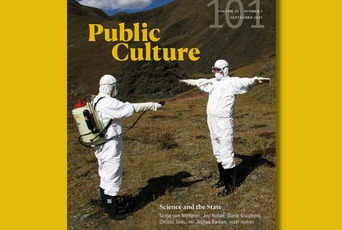
Scientific expertise and public engagement in science policy: A conversation with Dr. Alondra Nelson
Alondra Nelson, Harold F. Linder Professor in the School of Social Science, spoke with MIT Science Policy Review about the role of scientists and the broader public in shaping policy. Drawing on her extensive research on the intersections of science, technology, medicine, and inequality, and on her recent experience as acting director of the White House Office of Science and Technology Policy (OSTP), Nelson discussed the various ways in which scientists can participate in policymaking and the importance of and challenges that surround public access to science:
"Communication with the public is important. I think back to The Endless Frontier, which was a description of the evolution of the research and development ecosystem in the U.S., written by Vannevar Bush in 1945. Bush talked about the role of scientists, government, and academia as key stakeholders in the Cold War ecosystem. This was quite a powerful vision, and it resulted in the predecessor of the National Science Foundation, so it was also quite an impactful vision. But when I go back to Bush’s writing, as I do sometimes, I notice that it included little to nothing about the public, nothing about the public needing to be part of this conversation about tectonic shifts in science funding, not even as taxpayers. That is really striking. We envisioned, designed, and built a federally funded science ecosystem that did not include the public. I don’t know if it was okay in the 20th century, in that moment, but it certainly is not okay for this moment. We are now in a position where we can think of how to have the public participate meaningfully in the future of federal science policy and feel that their voices are heard."
Read the full interview on the MIT Science Policy Review website.

